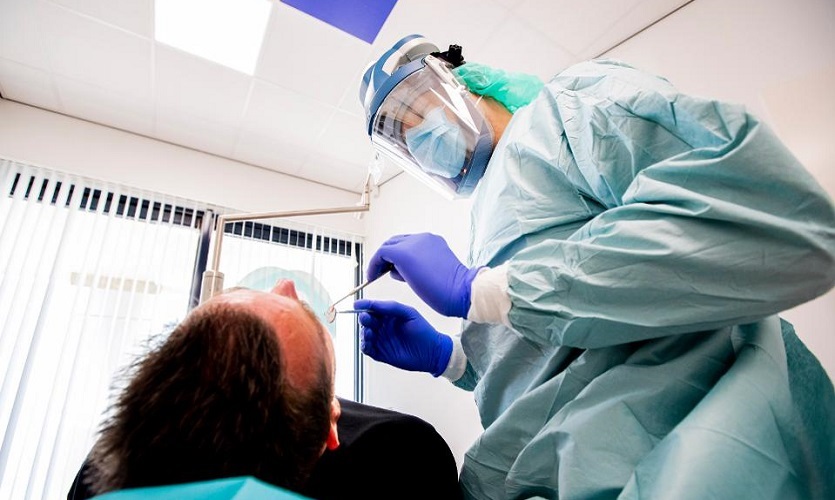Research confirms severity of COVID hazards for dentists

New research has underlined the hazards associated with COVID-19 in dental surgery settings, and proposed a solution to higher patient turnover.
Dental procedures generate aerosols in the treatment room, as cooling water and air are sprayed at high speed around the mouth cavity. Infectious droplets from saliva or blood enter the aerosol which may provide a path for the transmission of COVID-19.
A multi-disciplinary team from academia, industry, and the dental profession collaborated in a LJMU project to look at the extent of the hazard and ways of eliminating it.
Reporting in the British Dental Journal, they found most aerosol particles were less than 0.3 microns (μm) in diameter, a size range which encompasses the SARS-CoV-2 virus (0.05–0.15 μm) and reported that even in the presence of aerosol suppressing interventions, these particles were substantially elevated within half a metre of the patient’s mouth.
Clean-up
The team also looked at how to remove aerosol particles and permit a quicker turnover of patients – reducing so-called fallow time. Intraoral low and high-volume suction, either alone, or in combination with an air cleaning system capable of 24 air changes per hour was highly effective in rapidly reducing particle concentrations to within background range.
The team found they could cut fallow time from the current recommended 30 minutes to less than 10 minutes.
“Our results emphasise the importance to the dental team of using appropriate level respiratory protection, even with effective aerosol interventions in operation ,and the importance of an effective air cleaning system to reduce fallow time” said Dr Touraj Ehtezazi, of the School of Pharmacy & Biomolecular Sciences at LJMU.
The team was led by Prof Ian Jenkinson (LJMU) with Dr Touraj Ehtezazi (LJMU), and Dr David Evans (LCR 4 Start, LJMU) in collaboration with the University of Hertfordshire (Toxicology Research Group). It also included two dental practices Woodbury Dental & Laser Clinic (Kent) and Sandstone Dental Practice (Wirral) and a commercial Digital Dental Technology Integrator Techceram Ltd (West Yorkshire). The team received additional support from dental practitioners in Universities of Liverpool (Dental Hospital), and Manchester (Dental Hospital).


